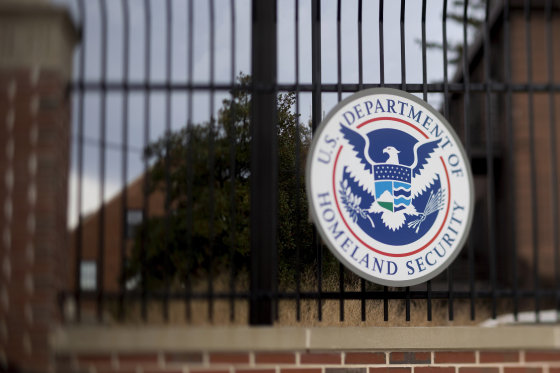The Biden administration withdrew a Trump-era plan to vastly expand the collection of biometric data, including DNA, from individuals associated with immigration or naturalization benefits and requests.
U.S. Citizenship and Immigration Services said in a statement to NBC News on Friday that the administration had withdrawn the proposal “consistent with administration priorities to restore faith in the legal immigration system and reduce barriers and undue burdens to intending immigrants.”
The plan would have expanded the government’s authority to collect and require biometric data from “every applicant, petitioner, sponsor, beneficiary, or other individual filing for or associated with any immigration or naturalization benefit or other request, unless waived or exempted,” the statement said. It also would have removed age restrictions, allowing the collection of data from children under 14.
Former senior immigration official Ken Cuccinelli defended the collection of such data in September, saying, “Leveraging readily available technology to verify the identity of an individual we are screening is responsible governing.”
“The collection of biometric information also guards against identity theft and thwarts fraudsters who are not who they claim to be,” he said.
The proposal would have been a major expansion in the collection of such data had it gone into effect. The plan would have allowed the government to collect additional types of biometric data, such as DNA and voice scans, from immigrants.
Critics of the plan said it was potentially in violation of privacy and civil rights and intrusive to those seeking access to the immigration process. Proponents of the proposal in the Trump administration said it was a safeguard against fraud and would improve vetting.


